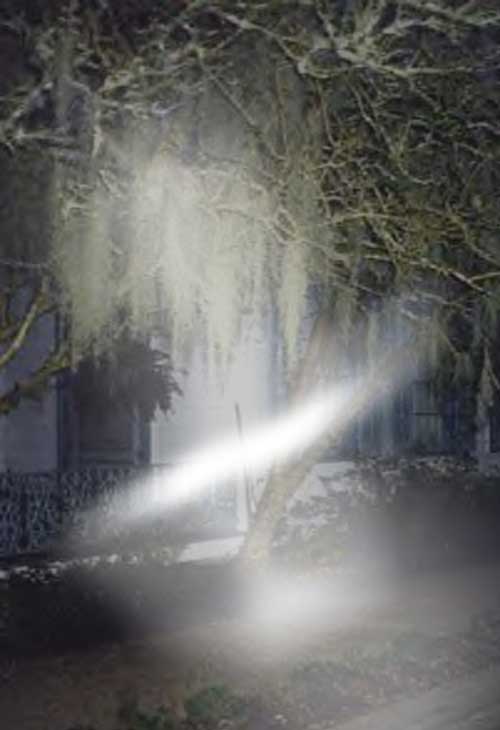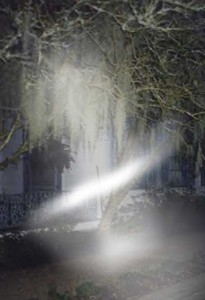In the summer of 2002, I was a graduate student in religion who was tired of reading theology. In search of summer fiction, I walked into a large bookstore and stumbled into a book that hit closer to home than I ever could have imagined. There it was in the main display: Unholy Ghost: Writers on Depression. Edited by Nell Casey, this volume contains essays from some of the most well-known memoirists on depression: Kay Redfield Jamison (Unquiet Mind), Susanna Kaysen (Girl Interrupted), William Styron (Darkness Visible), Meri Danquah (Willow Weep for Me), Nancy Mairs (Remembering the Bone House), and Martha Manning (Undercurrents), to name a few. These are writers with whom I was familiar, but it wasn’t the roll call of authors that caught my attention. It was the title: unholy ghost.
And the association of an unholy ghost with depression.
The title of the book is taken from a poem by Jane Kenyon, another Ann Arbor, Michigan native. Her poem, Having It Out with Melancholy contains a section called “Credo” that’s worth citing here:
Pharmaceutical wonders are at work
but I believe only in this moment
of well-being. Unholy ghost,
you are certain to come again.
Coarse, mean, you’ll put your feet
on the coffee table, lean back,
and turn me into someone who can’t
take the trouble to speak; someone
who can’t sleep, or who does nothing
but sleep; can’t read, or call
for an appointment for help.
There is nothing I can do
against your coming.
When I awake, I am still with thee.
As someone who clings closely to God, Spirit and religion, yet also has intimate experience with depressions, it fascinated me that depression would be so closely associated with an “unholy ghost.” And then I noticed. It’s not just Jane Kenyon and Nell Casey. When writers begin to talk about the experiences of mental health challenges, they talk about demon possession.
Yes, the therapist was wonderful, they report. And the medication, through trial and error, with side-effects and expense, is irreplaceable. But no matter how you slice it, National Book Award winner, Andrew Solomon says that he is still stalked by a “noonday demon,” the title of his award-winning book, subtitled “An Atlas on Depression.”
Listen to the language:
ghost, demon, unholy, coming, stalking, taking over, turning me into someone else
I understand completely. If grief can make people act out-of-sorts, depression can make a person feel entirely displaced. In the midst of depression, it seems reasonable to ask oneself, Who is this person who is so sad? Who is this person who can’t get out of bed? Who is this person who can’t hold a complete thought? I look in the mirror, and it’s the same body. But something inside is different. It is like spirit possession.
And it’s not good. Pain blots out all happiness. Sleep is a stranger. Going to work is like climbing Mt. Everest. Death seems preferable to numbness. It’s misery. My colleague Kathleen Greider calls it “soul suffering.” I can see why someone would call it an unholy ghost.
But does it have to be an unholy ghost?
For people like me who live with bipolar depressions, there is a flip side. There is also great exuberance and joy. There is supreme confidence and ability. Even when the effects can be destructive, it feels very good. If this is spirit possession, it is Casper, The Friendly Ghost.
I feel torn. I understand that some traditions talk about demons and ghosts that haunt and torture. That’s everywhere from Scooby Doo cartoons to The Ghost Whisperer. This seems an apt metaphor for a debilitating, often recurring, sadness that diminishes life.
But faith traditions also talk about the possession of spirits: holy spirits. Holy spirits don’t come to taunt and torture. In my Pentecostal and neo-Pentecostal Christian experiences, the Holy Ghost comes with a prophecy. An individual may speak in tongues. And if you are in community, and you wait, the interpretation will come. Paul talks about this in 1 Corinthians 12:1-10.
In the religion of the Yoruba peoples of southwest Nigeria, certain orisha (ancestor-spirits) possess as well. Then an individual takes on all the characteristics of the orisha – which are quite different from what that person would normally do. The orisha comes to give the community a message as well.
Both traditions agree that spirit possession is tiring. When it’s over, the person needs care. She may fall over. He will need to be fanned. She will need water. He will need rest. The community is there. They know what to do. They have towels, white cloths, water, places to lay down. Because this is not so abnormal to them. It’s part of what it means to be spiritual.
It’s hard to think about depression as a messenger. It’s hard to think that there is something I am supposed to know or learn – or that others should know or learn – from my depression. I’ve always been loathe to say that we suffer in order to learn or grow. It’s NICE when we can grow or learn after experiences of suffering, but generally speaking, suffering sucks.
Sometimes, weeks or months or years after a depression (with a lot of help from a therapist or spiritual guide), I can see a lesson. In the depression, I remembered something important I had forgotten. Or I found a new part of myself. Or I learned new skills for operating in the world. But that never eases the pain at the time. I am blinded to any fable-like moral. I have no time for reflection – I’m surviving here.
I think it’s a worthy idea. Perhaps depression can be a friendly spirit, a holy ghost. Perhaps there is a message or a lesson. I’m not sure. What I do understand from Pentecostalism and Yoruba religion is that spirit possession and depression are exhausting. And it’s nice when there are people around who will interpret, catch you, fan, offer water and rest. And that’s just normal for them.
* * *
A dozen theologians on how the Holy Spirit is at work today
my survivor strategies
Connect with me on facebook






Depression (much different than the mania phases typically seen in bipolar) can be very exhausting for some. I can see how for some it could be a “possession.” But, I wonder if there is really a “possession” during these periods as much as there is a feeling that “spirit” – breath, life – is being slowly (or quickly) sucked out. I often hear my own clients talk about feeling that the “life is being drained” out of them during these bouts. Often times (in my head) I am reminded of the dementors in the “Harry Potter” series. These dementors are leech-like spirits that don't necessarily “possess” as much as they overpower and fill themselves by extracting and inhaling the breath and soul of their “host” or victim.
I would also guess that there is a message in depression that likely differs from person to person. I would further assume that the lesson taught is centered in how the message is received, perceived, and handled by the recipient. I think that the message can be external or internal or both. Perhaps the message may not even belong to the person receiving it, yet they have to determine if they will deal with it and how. The reality is that whether there is a lesson to be learned or taught, there is still a message. But what does the recipient do with the message?
i really appreciate you're saying plainly that suffering sucks. and i love that idea of being surrounded by at least a couple people who will do those things you named as normal. heart.